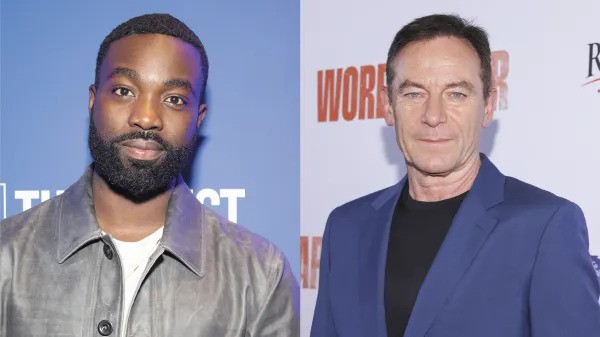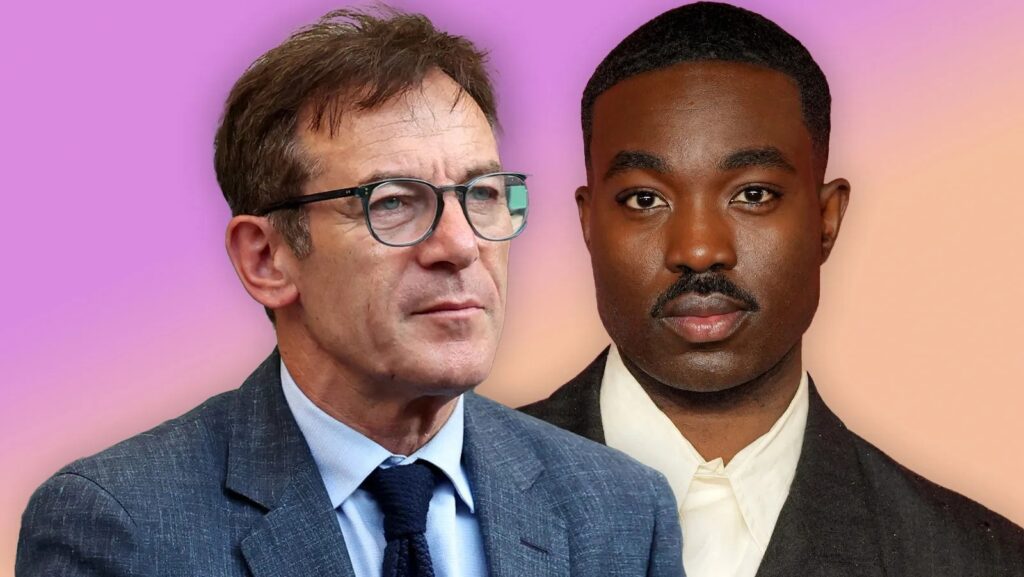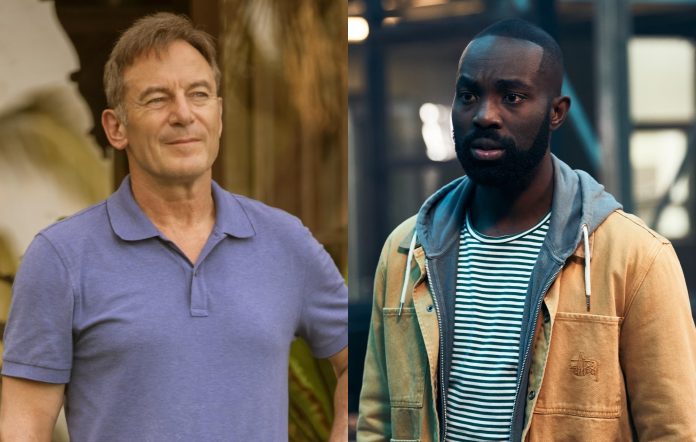When the latest twist in the Harry Potter universe emerged—Paapa Essiedu, a British actor of Ghanaian heritage, cast as Hogwarts’ enigmatic Snape—campfire chatter ignited across the fandom. Some fans, wedded to the image of Alan Rickman’s brooding, alabaster‑skinned creation, balked at the decision. But into that digital clamor strode one of the original cast’s most iconic—and iconically sarcastic—voices, Jason Isaacs, with a message as incisive as a wand‑duel hex: “What these people are being is racist.”
Jason Isaacs, now 62 and best known for his relentlessly venomous portrayal of Lucius Malfoy, is no stranger to controversy—or to compelling performances that linger. During a July 5 panel at Fan Expo Denver, hosted by Collider, Isaacs addressed the pushback Essiedu has received. While his Deadly Serious line of sight might once have been reserved for witches and wizard warlords, Isaacs now finds himself wielding his voice against a very real kind of darkness.
Standing before a packed audience, Isaacs didn’t hold back: “Paapa Essiedu is one of the best actors I’ve ever seen in my life,” he said. “I’ve seen some people online who are being rude about him. What they’re being is racist.”
Those words—sharp, unflinching—cut straight through the barrage of social‑media chatter. And in that moment, Isaacs reclaimed moral high ground, transforming from an on‑screen villain to an off‑camera ally—someone who truly understands that magic in our shared stories must transcend skin, not be confined by it.
At 35, Paapa Essiedu has already etched his mark in British television and beyond. His credits read like a who’s who of edgy, acclaimed dramas—from the raw brilliance of I May Destroy You to Black Mirror and The Outrun. His performances have consistently drawn praise for emotional depth and commanding presence.
When HBO officially announced his casting as a grown‑up Snape, the reaction online was predictably mixed. Some hailed it as bravely inclusive. Others objected, claiming that Snape “should be white” because Rickman was. In April, Essiedu took to Instagram and embraced the opportunity. With equal parts enthusiasm and wit, he signed off his post: “Professor Snape.”
The HBO series is shaping up to be a faithful re‑reimagining of J.K. Rowling’s beloved books: each season reportedly dedicated to a single novel. The adaptation promises fresh casting, deeper exploration, and a chance to reengage the story in a modern window.
Isaacs made sure to point out that Essiedu is far from the only exciting newcomer:
- Dominic McLaughlin will don the iconic round glasses as Harry Potter—a delicate balance of innocence, warmth, and courage
- Arabella Stanton brings youthful brilliance and curiosity to Hermione Granger
- Alastair Stout rounds out the famous trio as Ron Weasley, with humor and loyalty at his core
“These are amazing actors,” Isaacs enthused, voicing a belief that the entire ensemble is strong enough to unseat any doubters.
More than just a celebrity calling out online meanness, Isaacs’ remarks wade into deeper waters. Representation in media matters. Harry Potter, while a fictional universe, is also a cultural touchstone, and who gets to inhabit that world sends a powerful message.

Critics of Essiedu’s casting implicitly hinge on the idea that a character’s race must remain static, even in reboots—an idea that grows more problematic when most of the wizarding world was originally portrayed through a white, Western lens. In raising an ebony‑skinned Severus Snape, HBO signals that talent—not pigment—is what brings magic to life.
With steely half‑grin, Isaacs issued a warning to doubters: “They’ll be swallowing their tongues—hopefully their digital tongues—when they see what Paapa does onscreen.” In other words: wait until you witness his full performance. Let the magic speak for itself.
Isaacs’ words have more weight than most, considering he was once part of the darker side of that same world. Now, he’s stepping forward to call out exclusion, bias, and the kind of online cowardice characterized by anonymous complaints and shallow reasoning.
Casting controversies aren’t just headline fodder; they reveal how we view legacy, belonging, and history. Alan Rickman’s Snape is legendary—no one disputes that. But honoring his legacy doesn’t mean confining the role to a single physical type. It means embracing the essence: complex, conflicted, brilliant, morally fraught—and now, portrayed through a fresh lens.
In a media landscape increasingly aware of diversity—or pressured to be—Essiedu’s casting is a reminder that canon can evolve. That characters and stories can be retold with new voices, and maybe even reach new audiences. But the transition works best when it’s rooted in talent and thoughtfulness, and according to Isaacs, that’s exactly what has happened here.
Back in April, the actor seemed genuinely thrilled when he posted about the upcoming series: “An honor and a privilege to be going on this journey with these legends,” he wrote. “We shall eat, and we shall leave no crumbs. See you at Hogwarts.”
It wasn’t empty PR talk—it was a statement of humility and eagerness. Essiedu seemed to grasp both the scale of the opportunity and the responsibility—to honor the character, the fans, the story.
As of now, HBO hasn’t announced a release date for the Harry Potter series. But fans can extrapolate a timeline based on typical production schedules: if filming falls later this year, we might glimpse a trailer by late 2025, with a possible premiere in 2026. The show is set to dive deeply into J.K. Rowling’s texts, with her onboard as executive producer—as are many measuring their hopes and concerns given her controversial public record in recent years. So this series arrives at exactly the right time to serve as both continuation and rebirth.
Will the adaptation re‑contextualize key moments in new casting dynamics—say, an ethnically diverse Hogwarts? We don’t yet know the answers. But if there’s anyone equipped to judge its success, it’s Jason Isaacs: a man who once walked Hogwarts’ corridors in the long leather coat of Lucius Malfoy, and now stands ready to defend a new generation’s version of magic.

Social media, predictably, is ablaze. Some fan accounts are already calling Isaacs’ defense “the voice of reason,” while others continue to dismiss Essiedu’s casting as “divisive,” though fewer and fewer are sticking to race as their main objection.
That shift is key. When Isaacs—whose skin is pale and whose accent is unmistakably English—calls racism, it places the spotlight back where it belongs: on the fans making sweeping judgments based on appearance, rather than artistry.
One moment of transformation, but also many ripples. Critics used to hiding behind screens are now confronted with an ally from their own beloved story, sounding the alarm on bias. And for those still undecided, Isaacs’ words may be the prompt they need to look again—at Essiedu’s talent, not his complexion.
There’s something poetic about Jason Isaacs leading this charge. In Harry Potter, he was the deceiving, duplicitous father whose smirk chilled the soul. Outside of it, he’s everything that villains aren’t: outspoken, empathetic, and—above all—on the right side of history.
Casting Paapa Essiedu as Snape wasn’t a stunt. It wasn’t woke pandering. It was a decision anchored in respect: respect for acting ability, emotional truth, and the power of reinvention.
When Isaacs calls out racism, he knows what he’s talking about. That’s what makes his words, “What they’re being is racist,” pack their undeniable punch.
The stakes here stretch well beyond one fantasy television remake. This is about grappling with the stories we carry forward, and the doors we open—or close—along the way.
For decades, Harry Potter was an immersive escape—but it also communicated a narrow image of who can belong in a story’s center. The new series gives HBO—and fans—the chance to reshape that narrative. To tell kids who’ve historically felt unseen that they, too, can pull a wand, defy a dark prophecy, and fall in love with a magical world.
Will Essiedu’s Snape teach Potions? Will he defend Hogwarts? Will he, like Rickman before him, become one of the most complex, talked‑about characters in magical fiction?

Isaacs seems to think so. And after his swipes at racism, fans of both the original and the new generation may begin to as well.
From where we stand, this is what matters most: talent should override tone of skin; vision should outweigh nostalgia; and talent should transcend tradition. That’s the message of this casting—and of Jason Isaacs’ sharp rebuttal to racism.
He came forward not because he needed attention. He came forward because when a casting comes under fire for reasons beyond merit, someone needs to say the emperor has no clothes. He came forward because he knows that magic, at its best, is inclusive.
So to those still questioning Essiedu’s casting—take it from the man who once played his greatest antagonist: don’t judge a potion by its color. Wait until the performance. Wait for the moment. Because as Isaacs says, when you see what he does onscreen, you might find that they—the critics—are the ones eating dust.










